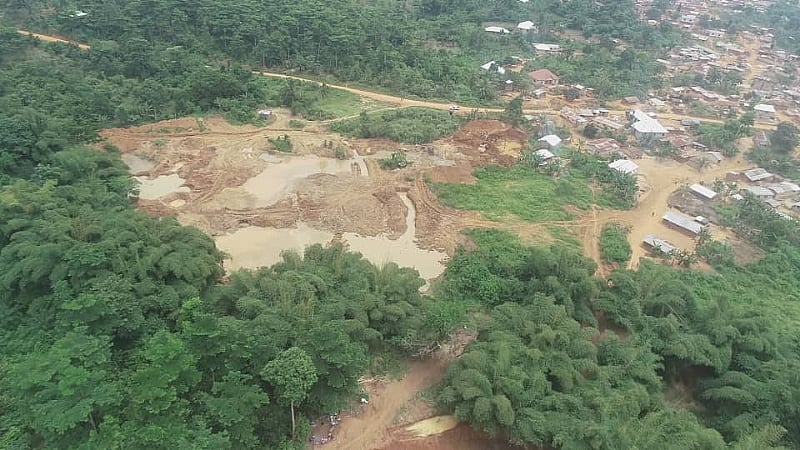Ebenezer Okletey Terlabi, the Ranking Member of Parliament’s Select Committee on Environment, Science, and Technology, is set to bring attention to the pressing issue of illegal mining, popularly known as galamsey, during the upcoming Parliament session on October 15, 2024. He has expressed his concerns regarding the government’s alleged inaction and “deafening silence” surrounding this pressing menace, which he believes poses significant environmental and social challenges. Terlabi’s remarks come as Parliament prepares to convene for its 5th meeting of the 4th session at the Accra International Conference Centre, where he sees galamsey as a critical issue that demands immediate legislative and governmental scrutiny.
During an interview with Citi News, Terlabi emphasized that the government’s lack of response to illegal mining activities is troubling, suggesting a disregard for the growing public outcry against the operations of illegal miners across the country. He highlighted the urgency for accountability, promising to ensure that the responsible parties are summoned to Parliament to address the issue directly. The widespread concern over galamsey has reached significant levels, with citizens increasingly frustrated by the government’s inaction, which Terlabi attributes to a preoccupation with electoral politics rather than environmental protection.
Alongside his intentions to address galamsey, Terlabi pointed to the ongoing delays in passing the Environmental Protection Bill, which he believes is a crucial piece of legislation needed to empower the Environmental Protection Agency (EPA). The bill is intended to provide the EPA with enhanced authority to regulate and monitor activities that impact the environment, particularly in the context of illegal mining. Terlabi calls attention to the challenges faced by the committee in pushing the bill forward, suggesting that political resistance from certain ministers and appointees may be hindering progress toward environmental governance.
The opposition MP’s concern reflects a broader frustration with systemic issues in the governance of environmental protection in Ghana. The galamsey phenomenon, fueled by a combination of economic desperation among local communities and insufficient regulatory frameworks, has led to significant damage to rivers, forests, and land, posing dangers not only to the environment but also to public health. As public discourse on environmental sustainability intensifies, Terlabi’s remarks underscore the need for robust legislative action and greater political commitment to tackle illegal mining decisively.
Terlabi’s advocacy resonates with many stakeholders, including environmental organizations and local communities affected by the rampant activities of illegal miners. The issue of galamsey not only highlights the need for effective policing and regulation but also emphasizes the importance of a coordinated governmental response that prioritizes sustainable development. Addressing the implications of illegal mining is not just an environmental concern but also a socio-economic one, as communities seek to balance their immediate economic needs with the long-term health of their environment and livelihoods.
As the October 15 parliamentary session approaches, Terlabi’s commitment to raising these crucial issues will undoubtedly resonate with the hopes of many Ghanaians seeking action against illegal mining. His efforts to push for the passage of the Environmental Protection Bill and to hold the government accountable for its inaction on galamsey reflect an urgent call to prioritize environmental policies that ensure the protection of the nation’s resources for future generations. The outcome of these discussions in Parliament could shape the future of environmental governance in Ghana, paving the way for more stringent oversight and proactive measures to combat illegal mining and its adverse effects on the country’s ecosystem.














